Say Goodbye to Lost Assets, Inefficient Inventory & Inaccurate Data—An Intelligent Management Revolution Built for Harsh Industrial Settings
Blog
- Categories: Technology
Yanzeo RFID Implantable Animal Microchip with Injector: The Ultimate Security for Your Pets & Zoo Animals
In today's world, our pets are more than just animals; they are cherished family members. And for zoos and conservation centers, every animal is a priceless treasure. Ensuring their safety and secure identification is a top priority for every responsible owner and manager.
This is where modern technology offers a simple, powerful solution. Meet the Yanzeo RFID Implantable Animal Microchip with Injector YG-101~102—a tiny device that acts as a permanent form of ID and a reliable safety net for a wide range of animals.
What is the Yanzeo RFID Animal Microchip?
Think of it as a digital passport, smaller than a grain of rice. The Yanzeo microchip is a tiny electronic circuit encased in a biocompatible glass shell. U
- Categories: Technology
Empower Your Inventory and Warehouse Management with Yanzeo UHF RFID Inlay Tag
In today’s fast-paced supply chain and retail environment, efficient and accurate inventory control is critical to business success. Traditional barcode scanning, while widely used, often falls short in scenarios involving large volumes of goods, rapid turnover, and complex warehouse operations.
That’s where the Yanzeo UHF RFID Inlay Tag comes in.
What is a UHF RFID Inlay Tag?
RFID (Radio Frequency Identification) technology enables contactless identification through radio waves. Compared with Low Frequency (LF) and High Frequency (HF), Ultra High Frequency (UHF) RFID tags
- Categories: Technology
Yanzeo ER20 Mini Bluetooth 1D 2D Barcode Scanner: An Efficient and Convenient Wireless Scanning Solution
With the rapid growth of industries like retail, warehousing, and logistics, barcode scanning technology has become an essential part of many business processes. Traditional wired barcode scanners are gradually being replaced by wireless devices, offering more freedom and flexibility. Among these, the Yanzeo ER20 Mini Bluetooth 1D 2D Barcode Scanner stands out as a popular choice due to its compact design, speed, and efficiency.
1. Advantages of the ER20 Mini Bluetooth 1D 2D Barcode Scanner
- Categories: Technology
Free your hands and increase your efficiency! Yanzeo ES30 mini ring scanner, the ultimate tool for warehouse inventory
Today, we'd like to introduce you to a revolutionary productivity tool—the Yanzeo ES30 Mini Ring Barcode Scanner. With its unique design and powerful performance, it's redefining scanning.
Why is the Yanzeo ES30 a star among ring scanners?
1. Ultimate Ergonomics, Truly "Hands-Free"
The Yanzeo ES30's greatest strength lies in its ring-like design. As light as a ring, it fits comfortably on your finger. No more picking up and putting down the scanner while you work; simply point your finger at the barcode to scan. This "point and scan" experience significantly reduces wasted effort, freeing your hands for handling goods, operating terminals, or organizing items, exponentially improving work efficiency.
2. Small Size, Big Power: Versatile 1D/2D Scanning
Despite its compact size, the ES30 delivers uncompromising s
- Categories: Technology
Yanzeo SU200 UHF RFID Reader: Empowering Smart Management Across Industries
In today's fast-paced world, efficient asset tracking, inventory management, and real-time data collection are essential for businesses across various industries. The Yanzeo SU200 UHF RFID Reader stands out as a powerful tool that enables seamless management by leveraging the capabilities of UHF RFID technology. With its high performance and versatile applications, this reader empowers industries to streamline their processes, reduce costs, and increase operational efficiency.
What is UHF RFID Technology?
UHF (Ultra High Frequency) RFID technology operates at frequencies between 860 MHz and 960 MHz, making it ideal for long-range asset tracking and data collection. UHF RFID systems use radio waves to identify, track, and manage items equipped
- Categories: Technology
In today’s era of digitalization and the Internet of Things, RFID technology has become a key tool for enterprises to achieve automation and improve efficiency. The Yanzeo SU200 UHF RFID Reader is a high-performance device designed for fast identification and intelligent applications.
Product Introduction
The Yanzeo SU200 adopts advanced UHF RFID technology with the following core features:
-
High-Sensitivity Reading: Supports long-distance and multi-tag simultaneous reading with high efficiency.
-
Stable and Reliable: I
-
In today’s fast-paced business world, efficiency is everything. Whether you’re managing book inventory, processing sales at a retail checkout, or handling warehouse logistics, having a reliable barcode scanner is essential.
Introducing the YANZEO C2010 Wireless 2.4G Barcode Scanner — a perfect blend of portability, speed, and accuracy to meet your scanning needs across multiple industries.
1. 2.4G Wireless Transmission – Say Goodbye to Cables
No more messy cables!
The C2010 uses 2.4G wireless technologyLooking for a fast, hands-free barcode scanning solution that performs reliably in demanding environments? The YANZEO YS868 offers powerful omnidirectional 1D barcode scanning, wide depth of field, and durable desktop construction—making it a smart choice for retail counters, logistics centers, and factory production lines.
Overview
The YANZEO YS868 Laser Flatbed Desktop Barcode Scanner is engineered for efficiency, accuracy, and long-term performance. With a 20-line omnidirectional optical grating and automatic scanning mode, it quickly detects and decodes 1D barcodes from any angle. Whether you're managing high-volume checkout lines or scanning items on an assembly line, the YS868 provides fast, stable barcode recognition e
Looking for a high-performance UHF RFID reader that’s built for demanding environments? The YANZEO SR792 delivers exceptional long-range tag reading, versatile connectivity, and rugged outdoor durability—making it a powerful choice for modern access control, logistics, and industrial automation.
Overview
The YANZEO SR792 is a long-range UHF RFID reader equipped with a 10dBi circular polarized antenna and housed in a waterproof IP67-rated casing. Supporting both ISO18000-6C (EPC Gen2) and ISO18000-6B

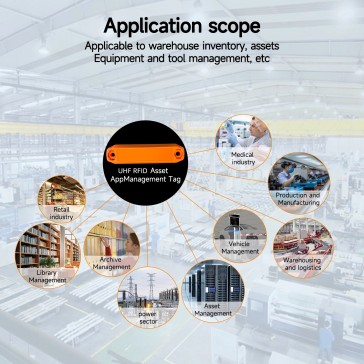
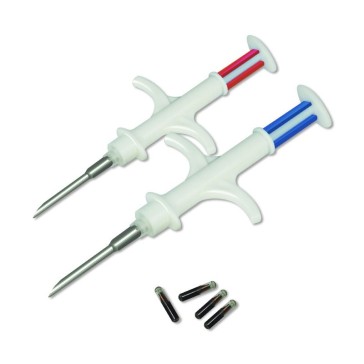


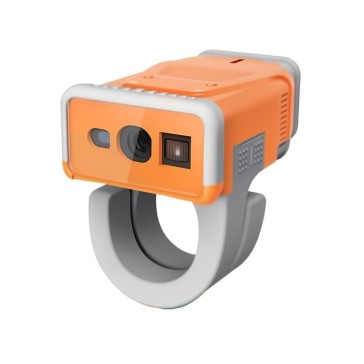
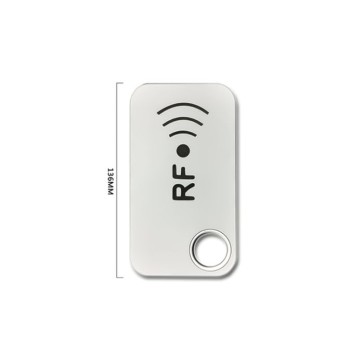
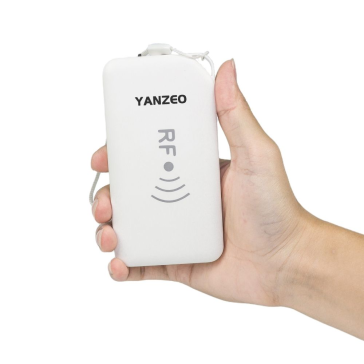
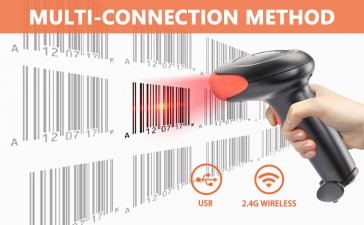
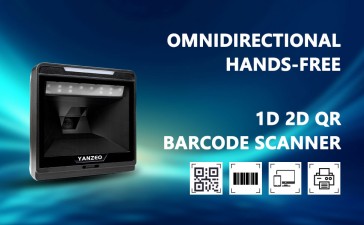
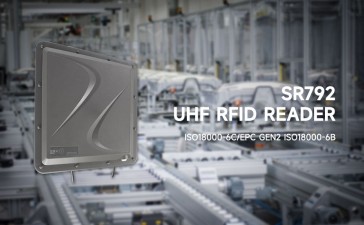


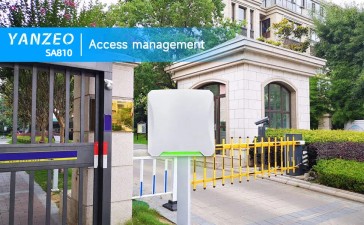
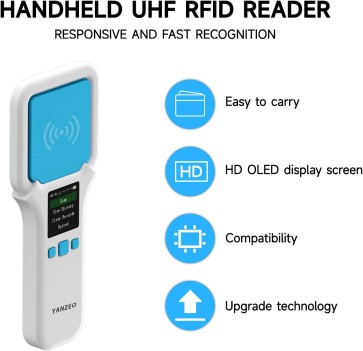
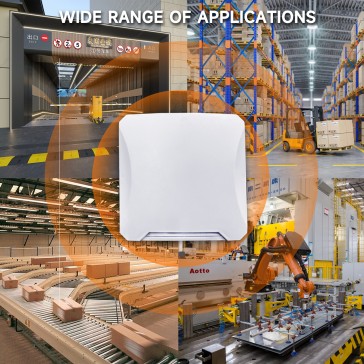
Validate your login